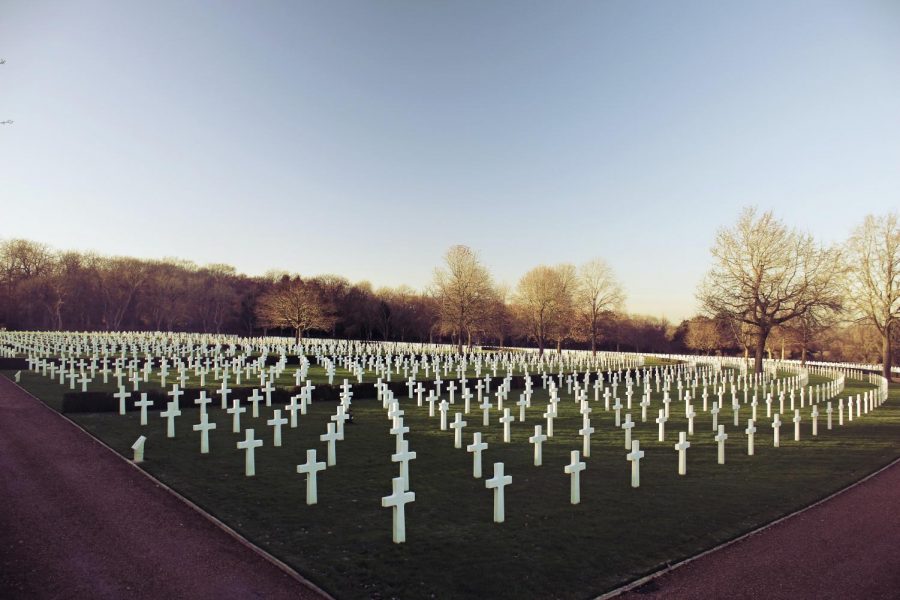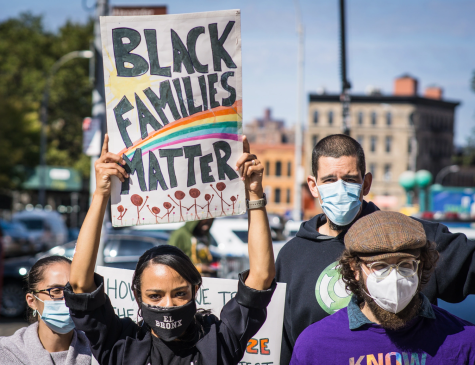Remembering U.S. Troops: the Facade of Memorial Day
The United States Government’s mistreatment of veterans.
“War, huh, yeah, what is it good for? Absolutely nothing” echoes on the radio, days before Memorial Day.
Bloodshed, crimes against humanity, and exploitation of human psychology: the wartime cocktail in the name of profit. Historically, America has participated in wars either through the deployment of troops or in positions of ‘neutrality’ selling weapons to countries at war.
While Americans took an annual three-day weekend remembering those that have served, vacationing in a primetime destination, many military veterans are homeless on the streets, dealing with drug addiction and mental health issues as a result of experiences in war. Veterans make up six percent of the U.S. population and eight percent of all homelessness in America, a study by Military Times found.
The facade of Memorial Day is a rose-colored lens Americans chose to engage in, unaware of an epidemic caused by war: unhoused veterans. American veterans are twice as likely than the average American to become homeless, according to the Bureau of Labor Statistics. This number jumps twice (four times greater) when the veteran is a female. The Veterans Affairs (VA) predicts between 13 and 15 percent of women veterans are living in poverty as a result of Military Sexual Trauma (MST), no job security, and are likely to become homeless.
“We’re the forgotten veterans there seems to be so much more out there in the way of programs, shelters, sobriety homes – so much more for men,” Homeless Hub Canada wrote, citing an American female veteran participant in Mass.
One in three women veterans reported MST during service, Women’s Veterans Health Care revealed.
“In 2006, a male shipmate got into my barracks room and placed a camera in my bathroom and set it to record… Another shipmate told me that everyone in the company office had passed the camera around and saw the video of me naked, getting into and out of the shower,” Petty Officer First Class Liberty Law told the New York Times.
The majority (89-91 percent) of women enlisted in branches of service in the United States experience MTS at higher rates than non-enlisted citizens.
What social safety nets does the federal government provide for those who enlist? Spoiler alert: little to nothing.
Wars fought for money, not humanity, is the sole purpose of American military strategy. The government views its veterans and troops as commodities, not people. Veterans returning from service receive no benefits, although America airs commercials in ‘honor’ of their service – a service that results in PTSD, anxiety, and many other mental health conditions.
“The government forgets about its military once they are done with service, we are, as we were told in Vietnam a ‘$15,000 loss,’” Vietnam Naval Veteran LeRoy Francis Jr. said.
The U.S. continues to do what they do best: commercialize and profit from the health of its people. How else would the government fund wars overseas if its consumers did not enjoy the ‘valorization’ of such bloodshed?
Political propaganda apparatus deployed within the country serves to the benefit of the military. Movies such as “Act of Valor” serve as the apparatus to disseminate propaganda, positioning the benefits of war outweighing the cost of loved ones, destroying countries overseas, and the countless civilian deaths as collateral.
“If we die, there is no help for us, just a folded flag. When we came home, we were on our own,” Francis Jr. continued.
Veterans account for 20 percent of all suicides within the U.S., CCK-Law reported. The healthcare system in America is partially to blame for the lack of support, the larger issue being war itself. The lack of a universal healthcare system in the U.S. left 1.53 million veterans uninsured, with two million not having the funding to afford healthcare, a Harvard-Public Citizen 2020 survey found.
“The best thing the government could do would be to realize that each veteran is an individual and treat them as such. There are too many homeless veterans, there are too many veterans with PTSD,” Francis Jr. concluded.
Despite having served in the Vietnam war for years, Francis Jr. said he still does not know how to get help through the VA and was left to fend for himself after leaving military service in 1975. He was left with no social safety nets, no healthcare, and no job security post-service.
Unless diagnosed before discharge, veterans do not receive covered mental health insurance from the VA. However, many mental health issues, most commonly PTSD, do not arise until about three months from the initial traumatic event, the National Institute of Mental Health wrote.
Francis Jr. has since been diagnosed with cancer; although covered by Social Security, Kaiser still takes a third of his social security funding. He said he is a rare case, looking extensively into programs to cover the costs of his cancer surgery, albeit without the help of the VA. After discharge, he had no assistance in job searches and had a total of .25 cents in his pocket from the U.S. government to return to Oakland, Calif., to embark on his life journey post-service.
America has failed its veterans. It is time for the government to fund social safety nets to provide correction to all wrongdoings enacted onto veterans. Polarized politics are not in favor of the people, and thus Americans must attempt to work across political lines to achieve a better future for those in the country. The Vietnam War was met with backlash from protesters in the streets, forcing the U.S. to withdraw. Americans must take a stance against the endless wars overseas to protect both those foreign and domestic. It is overdue that we re-evaluate our core beliefs as a country to ensure a better tomorrow for future generations, one that includes the basic human needs as outlined by the United Nations: food, housing, water, and healthcare. These are not privileges but rather basic human needs to survive.
Memorial Day is nothing short of a facade to ‘honor’ those lost in battle. Where are the social safety nets?
Homeless Hub Canada is a research organization dedicated to understanding the homeless crisis.
All opinions belong to Scarlet Schwenk and are independent of The Pioneer.










